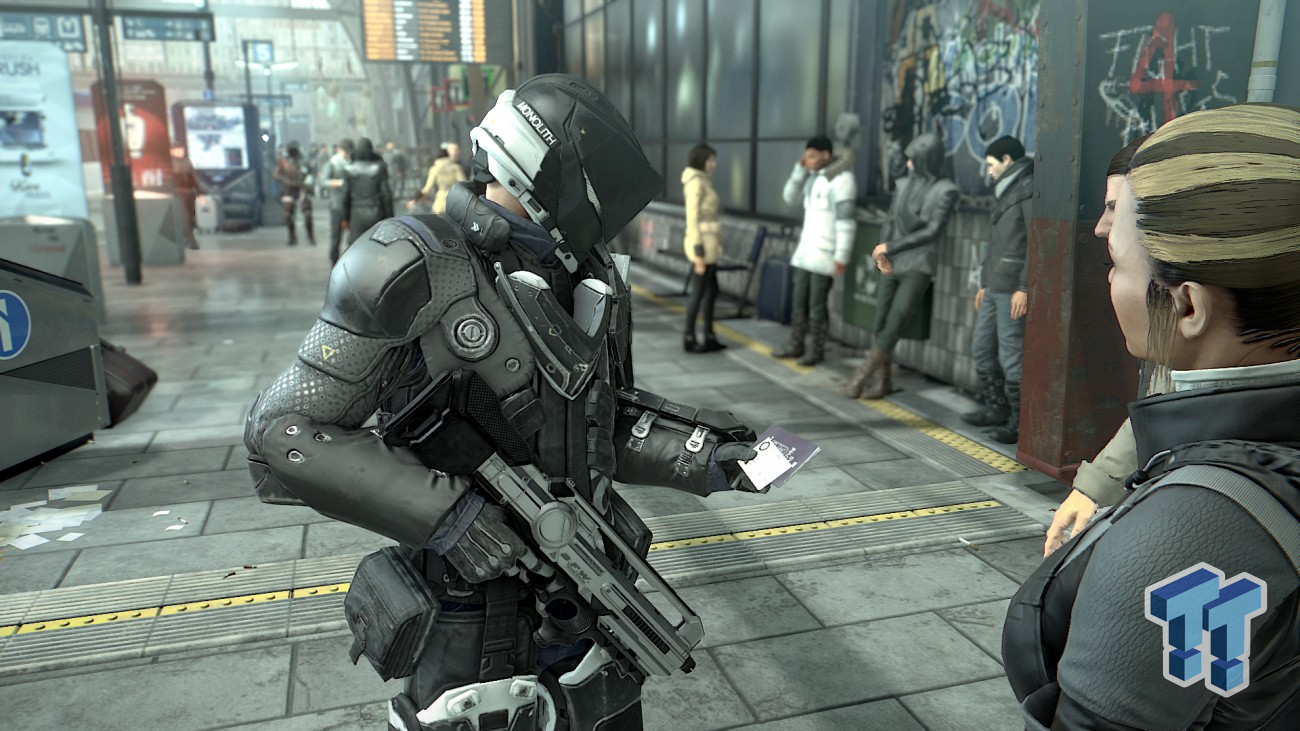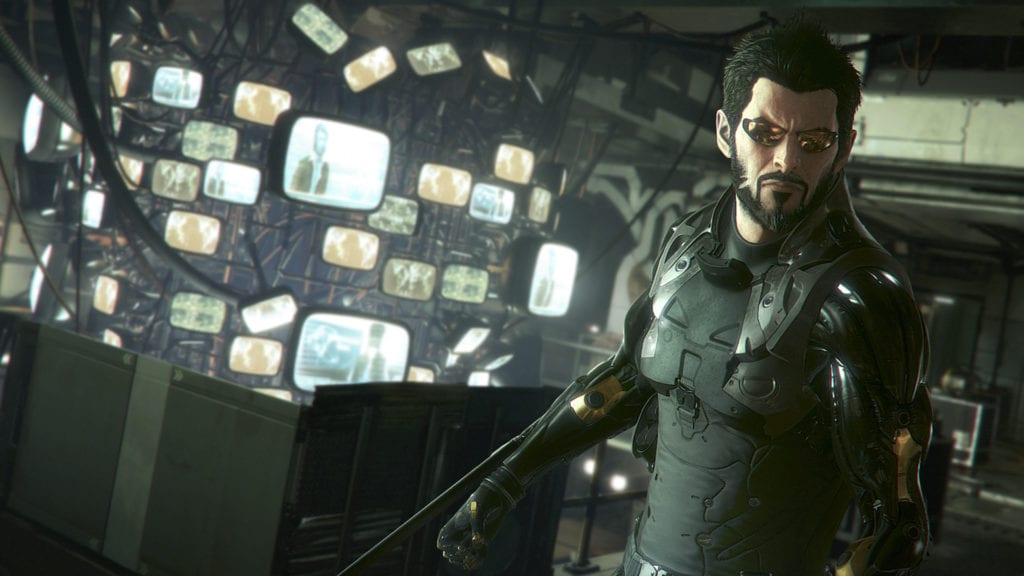

Deus Ex: Mankind Divided can't hold on to its outrage at the same time as it leads you up its upgrade tree.


And as the game dips deeper into that vision, as the political thriller plot at its center moves forward faster and faster, the nuance of its political setting gets left behind. You, somehow, are outside the systems and power structures of the world. While pointing out the terror of armed intervention, it insists that you can intervene better, that you can make the choices that no one else can make. Here's the problem: Jensen is a superhero cop in a story that suggests that good cops might not exist. It never connects back to anything the game might be trying to say. Shoot or sneak, hack or climb up the side of the building, whatever you please, but it doesn't really matter. There are choices here, too, but they lack weight. This is where you're escorted away from the squalor and into a sprawling enemy fortress, into a freeform espionage simulator. But like I said, a political tentpole videogame is, within the current market, a contradiction in terms: a violation of the mission statement of such games, which is to make as much money as possible and cater comfortably to the core demographic who would prefer their games entertain and not challenge.īut then the larger plot kicks back into gear, the one where Jensen is in Golem City to track down a hint about a terrorist plot.

It is, without a doubt, a political tentpole videogame. It's critical of violence, but even more critical of power brokers who play marginalized groups against each other for their own gain. I find it hard not to read this as a conflict between those who control the brand and those who make the game.ĭeus Ex: Mankind Divided is interested in power, in the ways a fictional form of oppression intersects with real ones, and about the way oppression works in general. On one end stood game's art director, Jonathan Jacques-Belletête, who went on the record in 2015 to say that "it's a form of art," and "I think we own it." In other words: of course it's political, because it's supposed to be.Ĭontrast that with the response of André Vu, Deus Ex's brand director, who called the resemblance to Black Lives Matter "an unfortunate coincidence," and the echoing sentiment from an early Square Enix press release insisting that the game's depiction was "neutral." Replying to such criticisms, Eidos and Square took two opposing tacks. Many voices in gaming criticized the campaign, pointing out that these were the markers of real-world repression, mostly against people of color, being used for marketing.


 0 kommentar(er)
0 kommentar(er)
